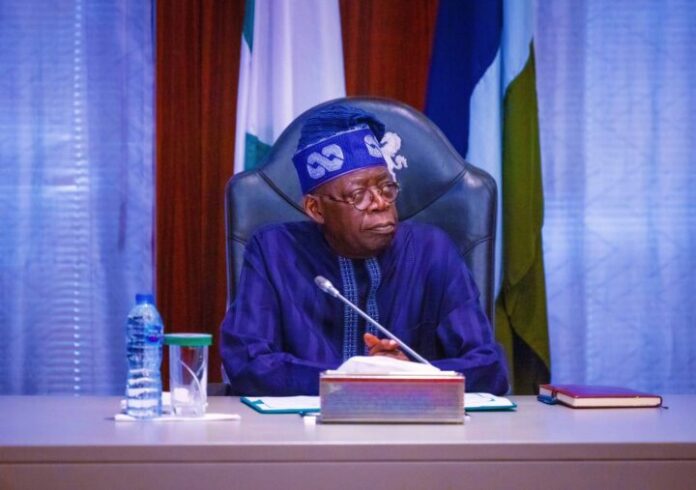President Bola Ahmed Tinubu has outlined what he called twelve major economic milestones achieved under his administration, claiming Nigeria is now on the path to fiscal recovery, economic stability, and long-term growth.
The President made this announcement during his national broadcast on Wednesday, October 1, 2025, as Nigeria marked its 65th Independence Day.
The list of achievements, according to Tinubu, shows that his administration’s tough economic reforms are beginning to yield results — especially in areas of revenue generation, debt management, oil production, foreign reserves, and the fight against poverty.
One of the most notable achievements, Tinubu said, was the country reaching its 2025 non-oil revenue target of over N20 trillion by August 2025, two years earlier than planned. In September alone, over N3.65 trillion was generated — a 411% increase compared to May 2023.
The President credited this to reforms in the tax system and improved revenue collection. Nigeria’s tax-to-GDP ratio has now risen to 13.5%, up from under 10%. A new tax law, which takes effect in January 2026, is expected to further grow this ratio without increasing the burden on low-income earners.
President Tinubu said his government had reduced the debt service-to-revenue ratio from 97% to below 50%, a major improvement in the nation’s fiscal health. The administration also cleared outstanding “Ways and Means” advances from the Central Bank, which previously contributed to inflation and budget instability.
He added that the controversial fuel subsidy, which he removed in 2023, has freed up trillions of naira for social programmes and infrastructure projects. Tinubu described the subsidy as “corrupt” and “unsustainable.”
At the same time, foreign reserves have grown to $42.03 billion, the highest level since 2019.
The President acknowledged past turbulence in the foreign exchange market but said the naira has now stabilised, thanks to reforms that eliminated multiple exchange rates and encouraged more inflows of capital and remittances.
“The gap between the official and parallel market rates has narrowed,” he said, adding that Nigeria’s currency is no longer at the mercy of oil price fluctuations.
Tinubu also reported that Nigeria has recorded a trade surplus for five consecutive quarters, with non-oil exports making up 48% of total exports — compared to oil’s 52%. This shift, he said, shows real progress in diversifying the economy.
In the second quarter of 2025, the trade surplus stood at N7.46 trillion (about $4.74 billion), the highest in three years. Manufactured goods exports also grew by 173%.
Meanwhile, oil production has risen to 1.68 million barrels per day, up from around one million in May 2023. The improvement is linked to better security and stakeholder engagement in the Niger Delta. For the first time in 40 years, Nigeria is also refining petrol (PMS) domestically, and has become Africa’s top exporter of aviation fuel.
In response to the hardship caused by subsidy removal, Tinubu said the government has disbursed N330 billion to support poor and vulnerable Nigerians. At least eight million households have benefited, receiving one or two out of three tranches of N25,000 each.
He also highlighted progress in infrastructure development, particularly in transportation. Rail and water transport grew by 40% and 27%, respectively. Projects nearing completion include:
The Kano-Katsina-Maradi Standard Gauge rail
The Kaduna-Kano rail line
The Lagos-Calabar Coastal Highway
The Sokoto-Badagry Highway
The Federal Executive Council has also approved $3 billion for the completion of the Eastern Rail Project.
Coal, Minerals, and Market Boom
Another area of growth is the coal mining sector, which jumped from a 22% decline in Q1 to 57.5% growth in Q2. Tinubu said solid minerals are becoming a key part of the economy, with more focus on value-added production.
The President also noted a boom in the Nigerian stock market, which reached 142,000 points in September — up from 55,000 points in May 2023. He attributed this rise to increased investor confidence and improved economic outlook.
Global credit rating agencies, he said, have responded positively by upgrading Nigeria’s outlook, a sign of international trust in the country’s reforms.
In another sign of economic stability, the Central Bank of Nigeria (CBN) recently cut interest rates — the first such move in five years. This, according to Tinubu, shows confidence in the country’s macroeconomic direction.
President Tinubu concluded by reaffirming his administration’s commitment to sustaining reforms that promote growth, create jobs, and improve lives.
He said: “These milestones are not the end of the journey, but clear signs that our path is the right one. We must remain focused, united, and determined to build a new Nigerian economy that works for everyone.”

